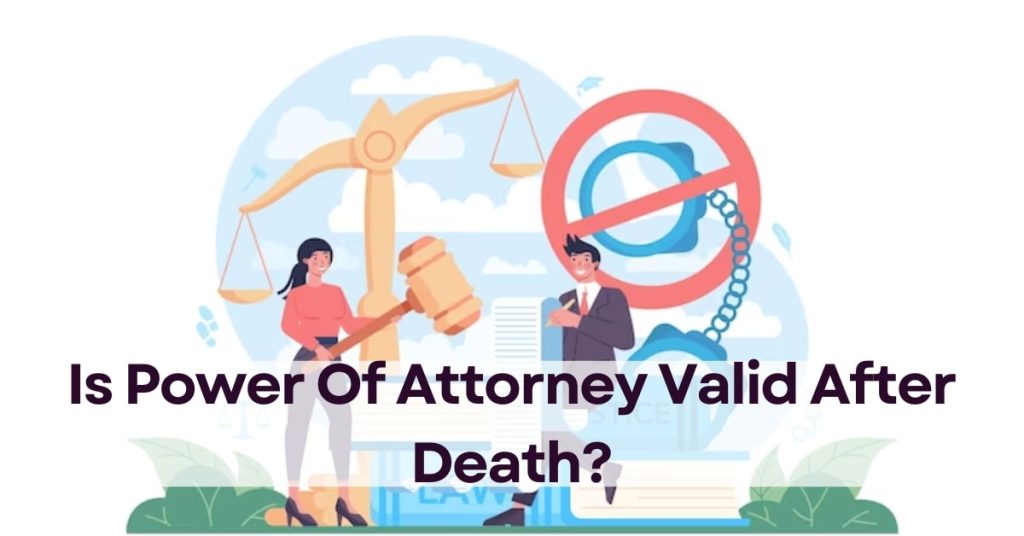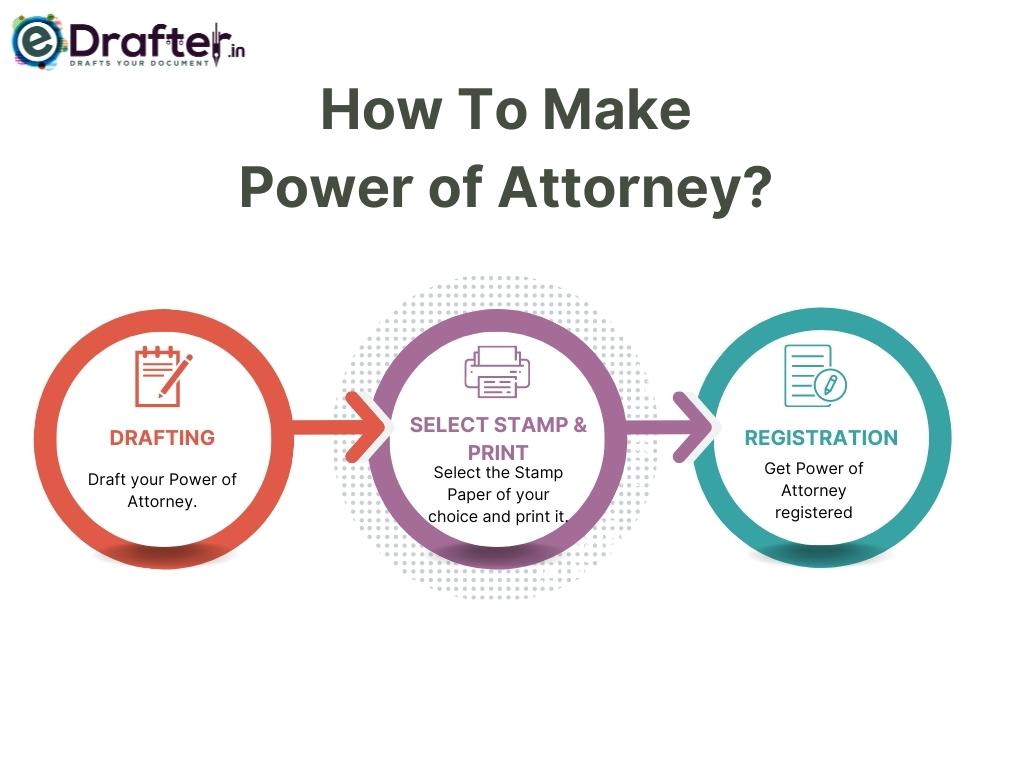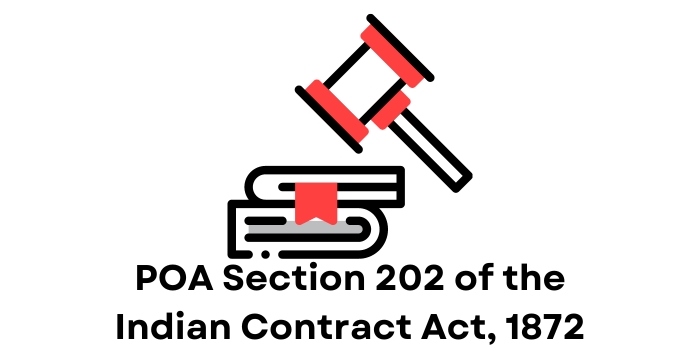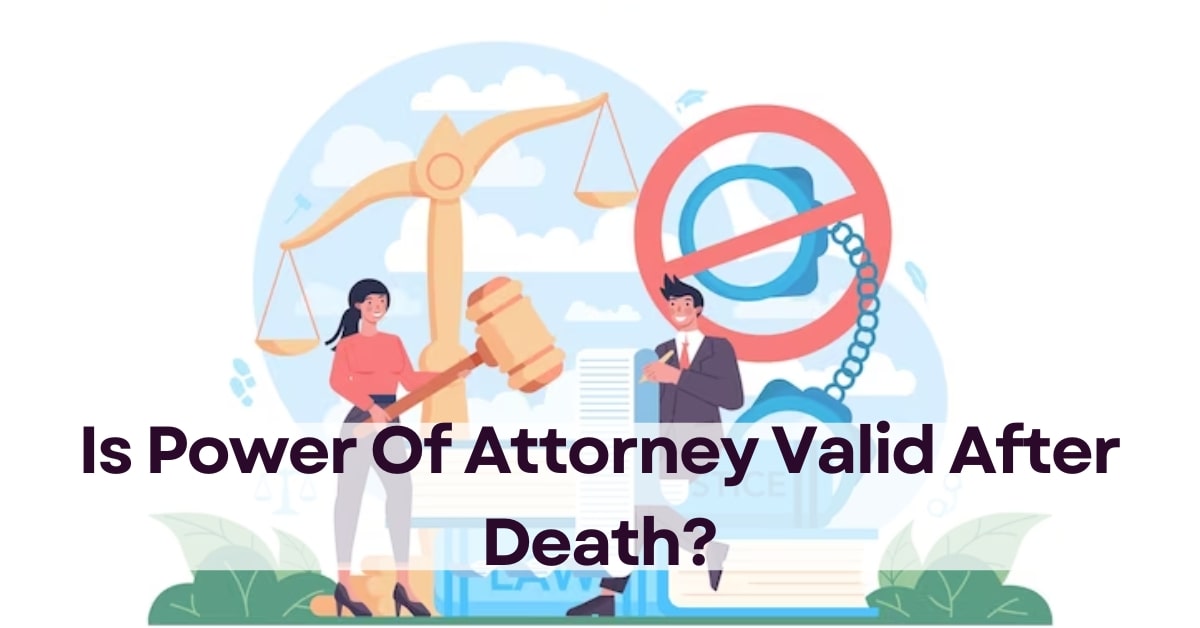
Table Of Content
- What is a Power of Attorney?
- Does the Power of Attorney expire?
- How to make Power of Attorney?
- In India, are Notarized Powers of Attorney recognized?
- Difference between Power of Attorney and a Will
- Can a Power of Attorney be irrevocable?
- What happens to Power of Attorney after the death of Agent?
- Can a Power of Attorney holder sell the property after death?
- Can a power of attorney be used to sell property in India?
- POA Section 202 of the Indian Contract Act, 1872
- What are the limitations of the general power of attorney?
- What happens when a Joint Power of Attorney dies?
- Frequently Asked Questions
People living abroad make more use of the service for the most part. Power of Attorney came in handy to people in crises. Crises such as COVID-19, during the quarantine visiting countries, came to a halt. At that moment everything switched to online platforms. Due to the virus where people were forced into their homes. Coming face to face became a challenge for people so even the preparation of legal documents switched to Online such as Rental agreements, Affidavits, Stamp papers, Will & Power of Attorney, etc.
What is a Power of Attorney?
Power of Attorney is a heavy legal document that gives a person (the agent or legal representative) authority to act on behalf of the owner (the principal) of that property or thing.
Does the Power of Attorney expire?
One common question that is raised by many is ‘Till when is the Power of Attorney valid?’. The answer is yes, the Power of Attorney can lapse. A POA usually states a duration or expiration date after which it is no longer valid. This means that the agent’s authority to act on behalf of the principal ends on that date unless the POA is renewed or extended. It is essential to check the terms of the POA to determine the duration and any renewal provisions.
In some cases, the POA may be durable, meaning it remains in effect even if the principal becomes incapacitated. Although, it may still have an expiration date. In other situations, a POA may terminate based on a specific event, such as the death, revocation, or incapacity of the principal. Therefore, it is essential to regularly review and update the POA to ensure that it remains valid and enforceable. But the validity of Power of Attorney in India expires when the principal collapses.
How to make Power of Attorney?
The following steps to make a Power of Attorney:

- Step 1: Draft your Power of Attorney.
- Step 2: Select the Stamp Paper of your choice and print it.
- Step 3: Get it registered as it is compulsory to do it.
In India, are Notarized Powers of Attorney recognized?
A power of attorney that has been signed in front of and authenticated by a Notary Public is presumed to have been lawfully executed under the rules of the Indian Evidence Act. The Indian Evidence Act’s section 85 states: “85. Presumption as to powers of attorney.
Difference between Power of Attorney and a Will
The differences are:
| Basis of Distinction | Power of Attorney | Will |
| Effect | Power of Attorney comes immediately into effect. | After the death of the testator, a Will comes into effect. |
| Power | The agent is given a limited power which the principal agrees upon. | The whole power lies in the hands of the person on whose name the Will has been written. |
| Validity | The validity of Power of Attorney in India extinguishes with the death of the principal or the agent. | Until and unless the purpose of the Will is not fulfilled it is termed as Valid only, if the grant does not want to terminate it. |
| Parties | Here the parties are called Principal ( owner of the property or business) and agent (who will be taking responsibility to manage the affairs of the property or business) | Here the parties are known as Grant (who is making the Will) and there is no specific terminology for the person on whose name the Will is being made. |
You can go through our detailed blog on Will Registration to know the complete process of will registration.
Can a Power of Attorney be irrevocable?
The scope of the permission granted may be broad or limited depending on the terms of the document. In most cases, a POA is revocable, meaning that the principal can revoke it at any time for any reason. However, in some cases, the Power of Attorney may be irrevocable.
An irrevocable POA is a legal document that can not be revoked by the principal once it is signed. This type of Power of Attorney is usually used in situations where the principal wants to ensure that a specific person or entity (trust or business entity) has the authority to act on their behalf, even if they become incapacitated or unable to act decisions for themselves.
However, an irrevocable Power of Attorney is a serious legal commitment that should only be made after careful consideration of all implications and consequences. It is important to note that even an irrevocable Power of Attorney can be challenged in court if there is evidence of fraud or undue influence. The irrevocable general Power of Attorney and special Power of Attorney are need to be prepared with utter care.
What happens to Power of Attorney after the death of the Agent?
In most cases, a Power of Attorney terminates automatically upon the death of the agent. This means authority granted to the agent under the Power of Attorney ends at the time of his death. Furthermore, the principal is no longer bound by any acts of the agent after that time. However, some powers of attorney may contain provisions that allow for the appointment of a successor attorney in the event of the death or incapacity of the original attorney. In such cases, validity of Power of Attorney in India after the death of agent would remain in effect. Moreover, the agent would be authorized to act on behalf of the principal.
Additionally, if the principal has appointed multiple agents to act jointly or severally under the POA, the death of one agent does not necessarily terminate the authority of the other agents, depending on the terms of the document and applicable law.
Can a Power of Attorney holder sell the property after death?
A law ends when the president dies. After the death of the representative, the representative has no legal right to act alone. The settlor’s guardian is responsible for managing and distributing assets according to the settlor’s will or state law. If the immovable is to be sold, the sale of property through the Power of Attorney it can only be done by the manager, not by the attorney in the POA. It should be noted that after the death of the testator, the Power of Attorney will become void. Moreover, the agent has no right to sell or transfer the property without the permission of the president.
Therefore, estate planning documents, including the POA, need to be regularly updated to ensure that they are up to date with the prevailing pressures and circumstances of the judge.
Can a power of attorney be used to sell property in India?
When buying or selling a property, a power of attorney is not a legal document to transfer property titles. But in Indian cities, selling a property through a general power of attorney has become a regular practice due to the financial advantages it offers to both the buyer and the seller.
By following the correct steps, a power of attorney agent is not legally prohibited from selling the property to himself.
POA Section 202 of the Indian Contract Act, 1872

Power of Attorney Act India deals with the concept of Power of Attorney. A Power of Attorney may be granted for a specific purpose or a specific period. It may also be provided for general purposes or for any transactions that may occur in the future. An agent has a fiduciary duty to act in the best interests of the principal and any breach of this duty may result in legal action against the agent. The Power of Attorney can be revoked by the principal at any time and it automatically expires upon the principal’s death.
Section 202 of the Indian Contract Act 1872 provides the legal framework for the concept of Power of Attorney. It is a useful for individuals who may not be able to attend their legal or financial matters in person. However, when granting a POA, it is necessary to proceed with caution and choose a trustworthy and competent representative. In addition, it is advisable to seek legal advice before granting a POA to ensure that all legal requirements are met and that the principal’s interests are protected.
What are the limitations of the general power of attorney?
He or she is unable to provide another individual the power to act as an agent. An agent is not allowed to operate against the principal’s best interests. As soon as the Principal passes away and the Executor of the State takes over, the POA’s authority to make financial or legal choices comes to an end.
What happens when a Joint Power of Attorney dies?
A joint Power of Attorney is a legal document that authorizes two or more natural persons to act on behalf of the principal in different matters. In the event of the validity of Power of Attorney in India after the death of one principal, the remaining principals may still be authorized to act on behalf of the principal, depending on the terms of the Power of Attorney agreement.
If the Power of Attorney is an enduring POA, then the authority granted to the remaining representatives will usually remain in effect even after the death of one of the representatives. This means that the remaining representatives will still be able to act on behalf of the principal. Also, they can make decisions about their finances, health care, and other matters.
However, if the validity Power of Attorney in India is not durable Power of Attorney and one of the agents dies, then the power given to the remaining agents usually terminates on the death of the agent. In such cases, the principal will need to sign a new Power of Attorney agreement to appoint a new representative.
Alternatively, if agent is capable of making decisions, he can revoke the Power of Attorney and make decisions on his own. In any case, the grantor must consult an attorney or other legal professional to ensure that his wishes are properly carried out and that his interests are protected.
Frequently Asked Questions (FAQs)
As already discussed above, the Power of Attorney in India does not last for long time. The duration is set in most cases but if it is not mentioned in the POA then the validity of Power of Attorney in India after the death of the agent or the principal gets over.
Basically, when you prepare POA then it generally means that you are lending the ownership to the other person who is known as the agent or the grant.
It unapologetically doesn’t matter which Power of Attorney it is SPA or GPA. The general POA validity ends where the date of termination comes or either of the part member is dies. Also, it should be an irrevocable general Power of Attorney.
An agent can perform various actions, such as managing finances, making medical decisions, and signing legal documents, depending on the type of POA granted.
Only notarized revocable POA may be canceled or revoked by sending the Attorney a notification or letter of revocation
It must be signed in front of specifically authorized individuals, such as a notary public, a judge, a council or honorary council, or an official from the Central Government.
To Notaries appointed in India, apply Sections 57 or 85. The fact that foreign notaries public are now accepted as legitimate authorities for section 85 of the Evidence Act’s purposes of due execution and authentication


